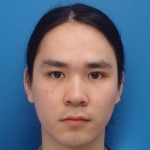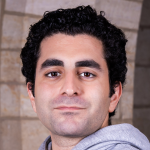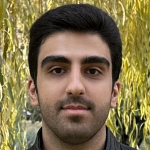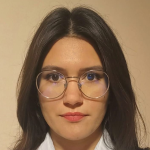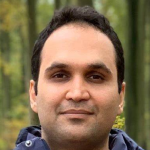Doctoral Candidates (DCs)
Development of a user-friendly c-VEP-based BCI system with self-adaptation, utilizing advanced statistical and machine learning algorithms for decoding intentions during spelling. This BCI system aims for a 100% literacy rate by combining previous research with c-VEP-based BCI.
Designing a new hybrid BCI stimulus by integrating c-VEP and SSMVEP paradigms, addressing the limitations of each method. In addition, this stimulus adopts its training templates based on the live EEG data, making it more suitable for prolonged use and improving real-life user experience.
Development of an EEG-based BCI software and hardware system that can be used as a biometric authenticator. This can be utilised in various industries, nuclear facilities, airports etc. to ensure security.
Developing a user-friendly BCI visual stimulus with an optimized closed-loop parameter adjustment, that allows for individual optimized stimulation. Those parameters shall be obtained within a short experimental session, utilizing active learning strategies.
BCI systems are capable to tap into the ongoing brain state of patients while they execute a task. By repeatedly engaging users in training tasks, the BCI indicates how effectively patients are utilizing relevant brain networks for task performance. By presenting feedback to the patient the BCI system encourages better engagement of brain networks, even in damaged areas. This study investigates whether BCI users can learn to estimate the BCI output through introspection, thereby contributing to the understanding of users' self-awareness and cognitive processes in the context of BCI usage.
Identification of non-invasive EEG-based biomarkers for early detection of Alzheimer’s disease (AD) using cognitive paradigms and resting state brain activity. The hypothesis is, that certain ERP components, evoked during a modified visual oddball paradigm can be used to distinguish between SCD subjects at high or low risk of AD development.
Designing and developing new kinds of BMIs based on motor imagery for controlling lower-limb exoskeletons. The developed protocol should allow for the exoskeleton to stop or start walking without requiring any acoustic cue. Additionally, by applying deep Transfer Learning techniques the adaption of new BMI users is accelerated.
Development of a generic and low power solution for continuous impedance measurements in wearable EEG device for user-friendly everyday use. As a part of this development an integrated circuit suitable for high impedance measurements must be designed.
Exploring methods for recognition and prediction of externally expressive emotions by using hybrid neuronal (EEG and EMG) interface. A deep learning model system can be used to train on smaller datasets while maintaining generalization despite noisiness of signals. This data generalization can be investigated to obtain better results. Additionally, techniques for processing, analysis, integration and classification of EEG and EMG signals within the context of a serios game for VR environment will be developed.
Development and testing of ne BCI-HMD protocols for rehabilitation of impaired motor function after stroke to improve the understanding of brain processes associated with activities in BCI environment. This will be done by combining existing neurophysiological knowledge with the information conducted by advanced machine learning tools processing the recorded brain activities.
Team of Supervisors
Dr. Ivan Volosyak is a Professor of Biomedical Engineering at Rhine-Waal University of Applied Sciences. His main research topics are brain-computer interfaces, signal processing and assistive technology with a focus on applications in spinal cord injury rehabilitation. He was previously a Project Manager of several national and European Union projects at the Institute of Automation, University of Bremen. He regularly organises the BCI-related Special Sessions at IWANN and IEEE SMC conferences.
Dr. Michael Tangermann is an associate professor at the Donders Institute for Brain Cognition and the AI department at Radboud University, specializing in data-driven neurotechnology. His research, leading the Neurotechnology Lab, focuses on machine learning methods for decoding brain states from both invasive and non-invasive signals on a single-trial basis. With a background in feature selection for Brain-Computer Interfaces, he explores methods that allow decoding of brain states.
Dr. Jordy Thielen is an assistant professor at the Donders Institute for Brain Cognition and Behaviour and the Artificial Intelligence department of the Radboud University, Nijmegen, the Netherlands. He has obtained a M.Sc. degree in both cognitive neuroscience as well as artificial intelligence, and obtained his Ph.D. degree in cognitive neuroscience on the topic of perceptual filling-in in visual perception. He has extensive experience with methods for encoding and decoding of brain activity as recorded by several neuroimaging techniques such as EEG and fMRI, and has applied this in neurotechnological systems such as brain-computer interfaces, specifically those using the c-VEP as recorded in the EEG.
Dr. Marc Van Hulle is a professor at the Neuroscience department of the KU Leuven Medical School, where he is the head of the Computational Neuroscience Group. He is teaching the courses Neural Computing (since 1988) and Brain Computer Interfaces (since 2010) to Master of Artificial Intelligence-, Master of Biomedical Science-, and PhD students. He is or has been the supervisor of 28 PhD students and over 90 master students.
Dr. Jose M. Azorin is the Director of the Brain-Machine Interface Systems Lab and Professor of the Systems Engineering and Automation Department at Miguel Hernandez University of Elchhe. He received his PhD in Robotics in 2003 (Award for the Best Thesis of the Department). He has been a visiting professor at the University of Houston (USA) and at Imperial College London (United Kingdom). Professor Azorín has focused his research on the field of Brain-Machine Interfaces (BMIs), where he has advanced the current state-of-the-art, developing BMIs able to control lower and upper limb robotic exoskeletons in rehabilitation and assistive applications for people with motor limitations. His research has been funded by international and national institutions. He has successfully supervised 8 PhD students.
Dr. Milad Zamani received his Ph.D. from University of Tehran in electrical engineering in 2018. Currently, he is an assistant professor at the ibrAIn center at Aarhus University, Aarhus, Denmark. He is teaching the courses Wearable and Implantable Devices and Analog IC Design for bachelor and master students. His research focuses on low-power circuits and systems for biomedical applications, wearable and implantable brain-computer interfaces, as well as analog/mixed-signal integrated circuits and systems. Currently, he supervises one full-time PhD student and is a co-supervisor to six others.
Dr. Robertas Damaševičius received his PhD in Informatics Engineering in 2005 from KTU (Lithuania). Currently he is a Professor at Software Engineering Department, Kaunas University of Technology, Kaunas, Lithuania. He is also an Adjunct Professor at Faculty of Mathematics, Silesian University of Technology, Gliwice, Poland. He is teaching the courses on human-computer interface design, robot programming and software engineering for bachelor, master and doctoral students. His research interests include digital health, brain computer interfacing, machine learning, signal processing, digital image processing, and assistive technology. He has successfully supervised 4 PhD students and over 20 master students, and currently he supervises 4 PhD students working on the topics related to signal processing, pattern recognition and assistive technologies.
Dr. Roman Rosipal is a senior researcher at the Institute of Measurement Science of the Slovak Academy of Sciences. He received his PhD in Computer Science in 2001. He has worked in the academic and commercial spheres on a variety of problems, including brain- computer interface, human fatigue and workload monitoring and prediction. During his stay at the NASA Ames Research Centre, CA, with his colleagues, he pioneered work on multi- modal neuroelectric human-computer interface development, including BCI. He is currently the principal investigator of the multicentre EU CHIST-ERA project ReHab (2022-2024), which focuses on developing a compact BCI-HMD system for post-stroke motor rehabilitation. He has successfully supervised one Ph.D. student with outstanding doctoral study results.




